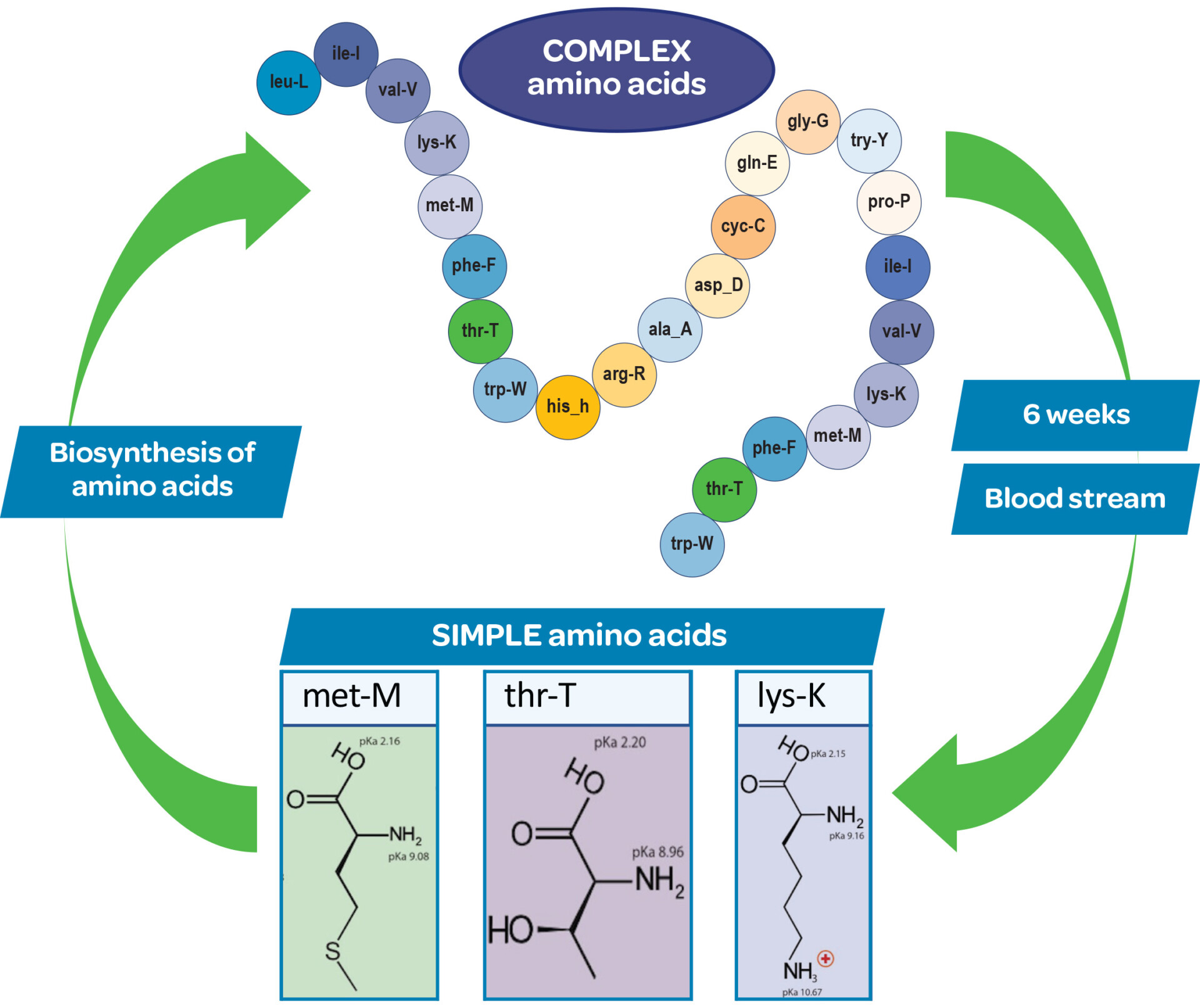Amino acids the building block of protein

Amino acids are the building block of protein for utilisation of both dry and green feed.
There are 10 essential amino acids and 10 known non-essential amino acids that are important for effective livestock production. The body does not produce essential amino acids naturally, so they need to be introduced. Non-essential amino acids can be made by the body through the synthesis of proteins.
Beachport has always believed there to be a tie between how essential and non-essential trace elements and amino acids function. This has now been scientifically proven.
For example, if the essential amino acid methionine is not available, sulphur can’t be fully utilised. Similarly, if proline is not available, the animal isn’t able to utilise calcium and phosphorus properly.
When amino acids and trace elements are introduced to the rumen, they are compromised by the rumen bacteria. Traditionally, this has been a barrier for the successful use of amino acids with ruminants. It’s been the difference between the lift in production of monogastrics compared to ruminants.
Beachport contains nine essential amino acids:
- Leucine: tissue repair, muscle mass, stress, growth, protein synthesis, bone, coat and blood haemoglobin.
- Isoleucine: nervous system, energy, muscle, endurance and blood haemoglobin.
- Valine: nervous system and glycogen production.
- Lysine: absorption and conservation of calcium, muscle development and immune system.
- Methionine: is a sulphur producing amino acid, promotes estrogen production and growth.
- Phenylalanine: nervous system (stimulates endorphin).
- Threonine: protein balance, immune system, nervous system, stress, bones and coat.
- Histidine: powerful nutrient, growth and blood health.
- Arginine: essential for nutrition.
Non-essential amino acids //
- Alanine: glucose-alanine cycle and urea cycle.
- Aspartic Acid: is a metabolite in the urea cycle.
- Glutamic acid: involved in cellular metabolism, breaks down dietary proteins into amino acids.
- Glycine: is considered a glycogenic acid, which means it helps supply the body with glucose needed for energy.
- Proline: for phosphorus, calcium absorption and essential for milk production
- Tyrosine: synthesises proteins.
To maximise the absorption of amino acids into the bloodstream, Beachport takes the simple amino acids in seagrass and biosynthesises them into complex amino acids.

By bonding fulvic acid with the amino acids and chelated trace elements, our supplements are protected from being broken down in the rumen. Instead, the nutrients are rapidly absorbed into the bloodstream and slowly released over six weeks.
Beachport’s innovative system of incorporating amino acids with the absorption and retention qualities of fulvic acid is key to how our products can minimise dependency on urea in lick and blocks.
